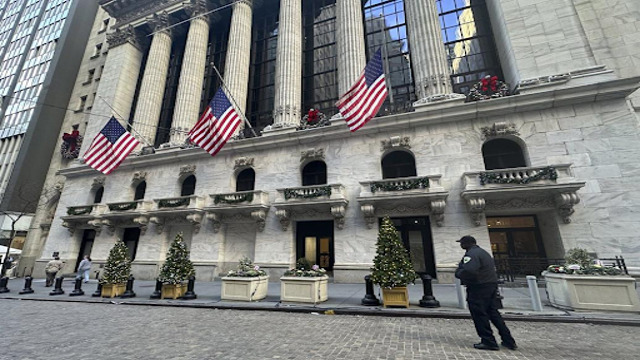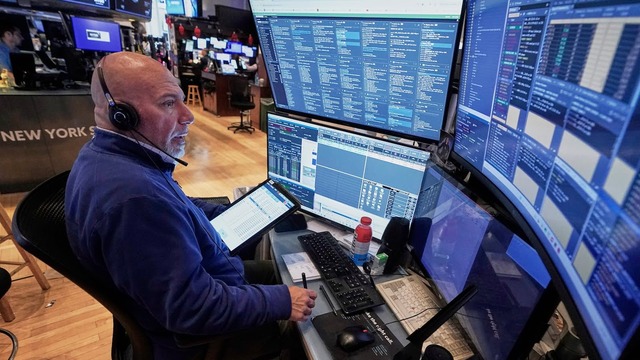
The New York Stock Exchange in New York's Financial District displayed American flags at half-staff on December 31, 2024, in honour of former U.S. President Jimmy Carter, who recently passed away. (AP Photo/Peter Morgan, File)
Wall Street began the new year on shaky ground, with major U.S. stock indexes slipping on Thursday. The S&P 500 dropped by 0.2%, marking its first five-day losing streak since April 2024. The Dow Jones Industrial Average fell 0.4%, erasing an earlier gain of 360 points, while the Nasdaq composite dipped 0.2%. These losses follow a strong 2024 performance, raising concerns among analysts about whether the market can maintain its momentum.
Tesla emerged as a key drag on the market. The electric vehicle giant’s stock plunged 6.7% after the company reported delivering fewer vehicles in the final quarter of 2024 than analysts had expected. This stumble was particularly striking given Tesla’s stellar run last year, bolstered by speculation that Elon Musk’s relationship with President-elect Donald Trump might benefit the company. However, critics have long warned that Tesla's soaring stock prices could face a correction, and Thursday’s decline may signal just that.
The broader market also reflected growing concerns about overvaluation. Bank of America strategist Savita Subramanian pointed out that Wall Street’s enthusiasm for stocks recently hit levels not seen since early 2022. Historically, such bullish sentiment has often preceded market pullbacks, making investors wary.
Amid the overall market decline, energy stocks offered a glimmer of hope. Companies tied to rising crude oil and natural gas prices managed to limit some losses. Constellation Energy led the way, with its shares surging 6.2% after securing over $1 billion in contracts with the U.S. General Services Administration. These agreements involve supplying power and implementing energy-saving measures, showcasing the continued importance of energy infrastructure in volatile markets.
On the technology front, Nvidia provided some positive news. The company’s shares rose 2.1%, continuing its impressive growth trajectory from 2023 and 2024. As a leader in AI-driven technology, Nvidia has become a favourite among investors banking on the AI revolution. Analysts remain optimistic, though skeptics argue that sky-high valuations in the tech sector could pose risks.
In the bond market, the 10-year Treasury yield held steady at 4.57%, following a better-than-expected jobs report. Fewer Americans filed for unemployment benefits last week, reinforcing the view that the U.S. labour market remains resilient despite high interest rates. However, the Federal Reserve has tempered expectations for rate cuts in 2025, citing persistent inflation and potential upward pressure on prices from Trump administration policies like tariffs.
Global markets presented a mixed picture. Chinese stocks took a significant hit, with Hong Kong’s index falling 2.2% and Shanghai’s dropping 2.7%. A report on factory activity in December showed slower growth, with new orders and employment weakening. Despite upbeat rhetoric from Chinese President Xi Jinping about the country’s economic recovery, investors are pushing for stronger action to support growth.
European markets fared better, with most indexes posting gains, while Japan’s stock market remained closed for the holiday.
As 2025 unfolds, Wall Street faces mounting questions about whether last year’s gains can be sustained amid growing economic and geopolitical uncertainties.















